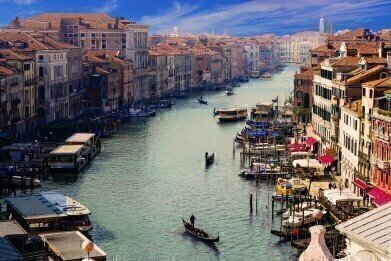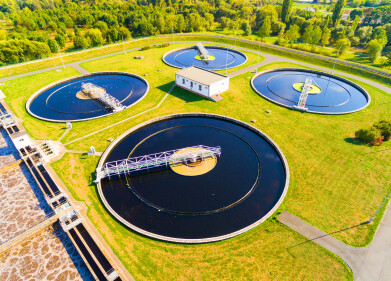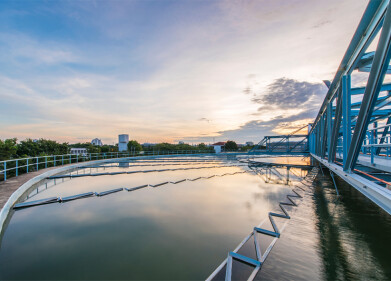Water/Wastewater
How Coronavirus Cleared Venice's Waters
Apr 07 2020
While coronavirus continues to claim tens of thousands of lives across the globe, there are some bright spots among the darkness. One of these appears to be the unanticipated side-effect that COVID-19 has had on the street canals of Venice, where the clarity of water has improved markedly over the last several weeks.
But while residents have reported being able to see little fish swimming amongst waterways that are normally so contaminated that visibility is terrible, the authorities have stressed that the water may be clearer – but it is unfortunately not cleaner. Rather, reduced traffic and activity in the water has allowed sediment to sink to the bottom, creating the illusion that water quality has improved.
A city under siege
Venice has been through the wars of late. In November of last year, it suffered its worst floods in more than half a century, which caused hundreds of thousands of euros’ worth of damage to private buildings and public infrastructure. Meanwhile, the city’s over-reliance on tourism has angered locals for decades, leading to a dwindling population and a city that seems to be literally sinking under the weight of its own popularity, kept only afloat by the marvels of modern technology.
Italy was the first European country to suffer a major outbreak of coronavirus and as such, the entire country has been under lockdown since quarantine measures were introduced almost one whole month ago, on 9th March 2020. While that has had terrible repercussions on the economy and led to over 130,000 cases of the disease (as well as over 16,000 premature deaths caused by it), there does appear to be one small silver lining in the clarity of the city’s famous waterways.
Clear but not clean
Venice residents have been taking to social media to report increased visibility in the canals that have made it such an iconic tourist destination. Indeed, the phenomenon has even sparked its own Facebook group – named Venezia Pulita, or Clean Venice – in which Venetians have posted pictures of the water’s clarity, attracting thankful and optimistic comments from other users of the site.
However, the mayor of Venice has been quick to highlight that the clarity is not an indication of water quality. “The water now looks clearer because there is less traffic on the canals, allowing the sediment to stay at the bottom,” a spokesperson for the mayor's office told CNN. “It's because there is less boat traffic that usually brings sediment to the top of the water's surface.”
Other positive side-effects
But while the canals may be as contaminated as ever, the environmental implications of coronavirus have asserted themselves in other, more tangible ways. The air quality above Venice, for example, has improved dramatically since the lockdown was first introduced. With less vaporetti, gondolas and other tourist boats on the water, there have been fewer fumes and emissions in the atmosphere.
What’s more, the cessation of all industries which are not deemed critical to the city’s survival has also helped to reduce emissions, leading to a marked improvement in air quality overall. That same beneficial effect has been witnessed all across the globe, especially in Wuhan City in China, where the outbreak first occurred.
Digital Edition
IET 34.2 March 2024
April 2024
Gas Detection - Biogas batch fermentation system for laboratory use with automatic gas analysis in real time Water/Wastewater - Upcycling sensors for sustainable nature management - Prist...
View all digital editions
Events
Apr 30 2024 Melbourne, Australia
Apr 30 2024 Birmingham, UK
May 03 2024 Seoul, South Korea
May 05 2024 Seville, Spain
May 06 2024 Minneapolis, MN, USA


















